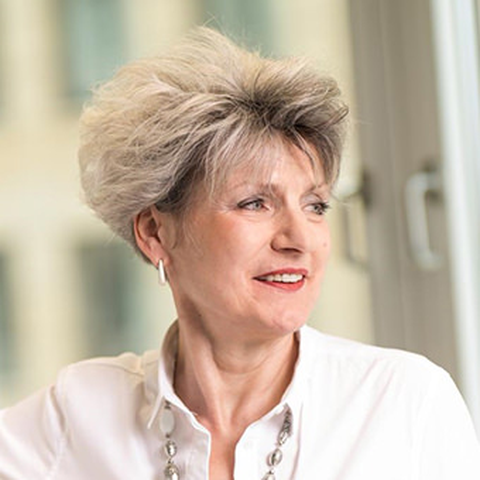Prof. Dr. oec. habil. Ulrike Stopka
Born: 1954, in: Dresden
Faculty: Transportation Sciences
Academic title: Prof. Dr. oec. habil
"Venture into male-dominated fields, develop the skills and have the courage to take on women in leadership positions in scientific projects and make profitable use of the skills often attributed to women, such as a strong team orientation, willingness to cooperate and empathy."
This advice from the second pioneer of the HERStory calendar, Prof. Dr. oec. habil. Ulrike Stopka, is aimed at young women aspiring to a career in science. She also emphasizes how important it is to have role models who provide guidance and inspiration. For her, role models are women who "often decide to leave their comfort zone and are not discouraged by headwinds." Stopka herself is undoubtedly one of these role models.
Ulrike Stopka, born in 1954, studied Industrial Engineering and Management in Dresden. Her doctorate in 1981 was followed by her habilitation in 1986. From 1993 to 2020, she was the first female professor at the Friedrich List Faculty of Transport and Traffic Sciences at TU Dresden and headed the Chair of Information and Communication Business Management & Economics. After completing her active service, she worked as Senior Professor at the faculty until 2024.
Her academic career was characterized by a great interest in information and communication systems and services. Her research was primarily dedicated to their potential applications in various economic, societal and social areas, with a particular focus on the design of innovative, digitally supported mobility services. Investigating the mutual influence of transport and communication markets in terms of supply and demand, the implementation of economic laws and the creation of fair competitive conditions is a very exciting and rewarding task for her. However, her passion was not only for research: it was and is particularly important to her to train young, committed people. She attaches great importance to theoretically sound teaching that also imparts practical skills that are essential for later professional life.
However, she also encountered challenges along the way that had to be overcome. Reconciling her intensive working life at the university with her private life was one of them, as it is the research and teaching workload that determines her working hours and not the hands on the clock. However, thanks to the support of her family, who supported the equal division of labor at home, she was able to manage a lot. However, she also had to realize "that women are offered committee and committee work, the assumption of functions within the framework of academic self-administration and similar tasks with greater naturalness than men".
Despite these challenges, she was not discouraged and developed strategies to successfully shape her career in academia. In doing so, she gained valuable experience that she now passes on to young women aspiring to an academic career: "Have confidence in your own abilities and develop enthusiasm for your chosen field, build up national and international networks, research and teach at partner institutions abroad for a while if possible and publish high-quality papers to raise your profile in the scientific community." Above all, however, young female scientists should: "show perseverance, persistence and courage, because otherwise you won't stand up to students, colleagues in the academic environment or partners in practice."

